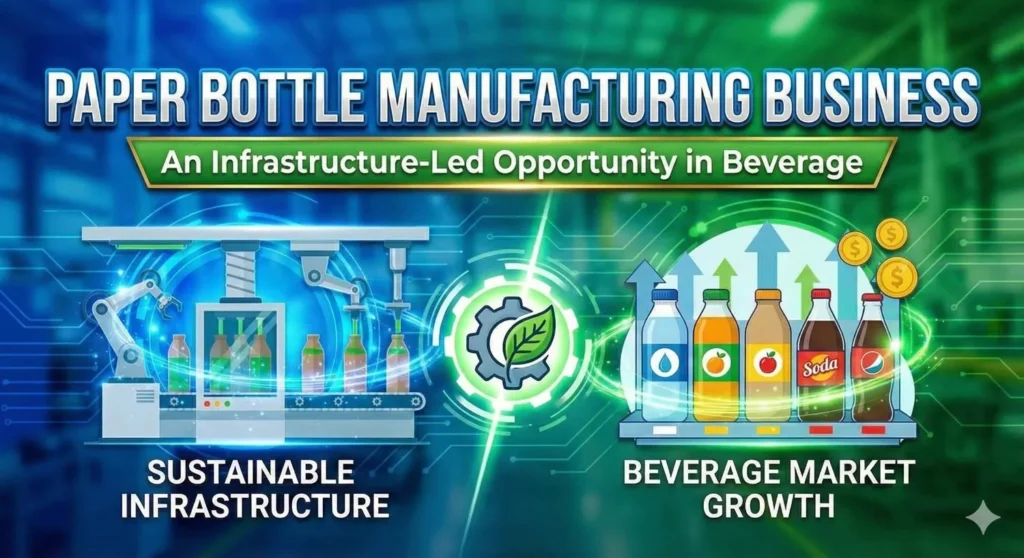Multiblade safety razors have become an essential grooming product for millions of people across the globe. As grooming habits evolve and personal care awareness increases, the demand for high-performance, skin-friendly razors continues to rise. Entrepreneurs exploring opportunities in the manufacturing sector can find a profitable and scalable business idea in producing multiblade safety razors. With advancements in materials, automation, and global trade, starting a razor manufacturing business in 2025 is more feasible than ever.
Contents
- 1 Market Overview and Scope of Multiblade Safety Razors
- 1.1 Step-by-Step Guide to Start a Multiblade Safety Razor Manufacturing Unit
- 1.1.1 1. Conduct Market Research
- 1.1.2 2. Create a Business Plan
- 1.1.3 3. Legal Formalities and Registration
- 1.1.4 4. Location and Infrastructure Setup
- 1.1.5 5. Machinery and Equipment
- 1.1.6 6. Raw Materials and Sourcing
- 1.1.7 7. Workforce and Technical Staff
- 1.1.8 8. Quality Control and Safety Standards
- 1.1.9 9. Branding and Product Differentiation
- 1.1.10 10. Marketing and Sales Strategy
- 1.1.11 11. Distribution Channels
- 1.1.12 12. Investment and Cost Estimation
- 1.1.13 13. Sustainability and Innovation Focus
- 1.1.14 14. Government Support and Subsidies
- 1.1.15 15. Challenges and Solutions
- 1.2 Conclusion
- 1.1 Step-by-Step Guide to Start a Multiblade Safety Razor Manufacturing Unit
Market Overview and Scope of Multiblade Safety Razors
In recent years, the grooming industry has seen significant growth, with the men’s grooming segment expected to reach $81.2 billion globally by 2026. A significant portion of this market is occupied by shaving products, especially multiblade safety razors due to their superior shaving experience. Consumers prefer razors with multiple blades as they provide a closer, smoother shave and reduce the chances of nicks and cuts.
The rise of eco-conscious and reusable razor options has further propelled the need for durable, well-designed razors. This industry shift provides newcomers the chance to combine innovation with sustainability, thereby attracting modern consumers.
See Also: Silico Manganese Manufacturing
Step-by-Step Guide to Start a Multiblade Safety Razor Manufacturing Unit
1. Conduct Market Research
Before initiating production, it’s crucial to conduct in-depth market research. Study competitor brands, understand consumer pain points (like skin irritation, blade dullness), and explore innovations like lubricating strips or pivot heads. This will help you design a product that not only competes but stands out in the market.
2. Create a Business Plan
Your business plan should outline your production capacity, capital investment, target market, pricing strategy, and marketing plan. Include a SWOT analysis to understand the strengths, weaknesses, opportunities, and threats related to your manufacturing business.
3. Legal Formalities and Registration
To begin a multiblade safety razors business, register your company under the appropriate business structure (proprietorship, partnership, LLP, or private limited company). Apply for necessary licenses such as:
-
GST registration
-
Factory license (if applicable)
-
Trademark registration for your brand
-
Pollution control board clearance
4. Location and Infrastructure Setup
Choose an industrial area with access to basic amenities like water, electricity, and transportation. The factory should be spacious enough to accommodate different zones – manufacturing, packaging, storage, and quality control.
5. Machinery and Equipment
The manufacturing of multiblade safety razors involves precision engineering. You’ll need specialized machines for:
-
Injection molding of razor handles
-
Blade stamping and sharpening
-
Assembly machines for blades and cartridges
-
Ultrasonic welding units (for fixing components)
-
Automated packaging machines
Procure high-precision CNC machinery if you plan to manufacture the razor blades in-house, as this ensures uniform blade sharpness and safety standards.
6. Raw Materials and Sourcing
The quality of your final product heavily depends on raw material selection. Key materials required include:
-
Stainless steel or coated carbon steel blades
-
Polymer granules for razor handles
-
Rubber (for grip)
-
Lubricating strip materials (e.g., aloe vera, vitamin E-infused polymers)
-
Packaging materials
Source raw materials from ISO-certified suppliers to ensure product consistency and safety.
7. Workforce and Technical Staff
Hire skilled labor for machine operations, blade sharpening, assembly line management, and packaging. Technical personnel such as mechanical engineers, quality assurance specialists, and R&D staff are essential for maintaining high product standards and driving innovation.
8. Quality Control and Safety Standards
Since multiblade safety razors are directly used on human skin, stringent quality control is vital. Set up a dedicated QA/QC department to test:
-
Blade sharpness
-
Structural strength
-
Material safety (non-toxic, hypoallergenic)
-
Smoothness and ease of assembly
Comply with BIS (Bureau of Indian Standards) and international safety standards for grooming products.
9. Branding and Product Differentiation
Your brand name, packaging, and features are crucial for success in a competitive market. Offer unique selling points like:
-
Recyclable or biodegradable handles
-
Anti-rust coating on blades
-
Skin-friendly lubricating strips
-
Subscription-based refill packs
Innovative and sustainable branding will help you penetrate both online and offline markets.
10. Marketing and Sales Strategy
Use digital marketing to promote your product. Partner with e-commerce platforms like Amazon, Flipkart, and Nykaa. Consider influencer marketing and grooming blogs to gain consumer trust.
Offline strategies include collaborating with retail chains, supermarkets, and pharmacies. Launch trial packs and starter kits to increase first-time user conversions.
11. Distribution Channels
Set up an efficient distribution network for your multiblade safety razors. Establish regional distributors and dealers to cover a wide geographic area. Maintain a B2B channel for corporate shaving kits or hotel supplies. Additionally, consider exporting to neighboring countries where grooming tools are in demand.
12. Investment and Cost Estimation
The total investment for setting up a multiblade safety razors plant depends on your scale of operations. Here’s an approximate breakdown:
-
Machinery and equipment: ?35–50 lakhs
-
Raw materials (initial batch): ?10–15 lakhs
-
Factory setup and utilities: ?20–30 lakhs
-
Labor and staff salaries (3 months): ?8–10 lakhs
-
Marketing and branding: ?5–10 lakhs
-
Contingency and legal costs: ?5 lakhs
Thus, a small to medium-scale unit may require an initial capital of ?80 lakhs to ?1.2 crores.
13. Sustainability and Innovation Focus
In 2025, sustainability is no longer optional. Offer refillable razors and recyclable blade cartridges. Use plant-based lubricants or develop plastic-free packaging. This not only reduces your environmental footprint but also appeals to eco-conscious buyers.
R&D can play a major role. Stay updated on materials science, blade coating technologies, and ergonomic designs. Creating a razor that balances affordability, comfort, and environmental responsibility will keep your product relevant.
14. Government Support and Subsidies
MSMEs involved in manufacturing grooming products can avail schemes like:
-
Credit Guarantee Fund Scheme
-
PMEGP (Prime Minister’s Employment Generation Programme)
-
Production Linked Incentive (PLI) scheme for manufacturing
-
Interest subsidy on machinery loans under state-level policies
Consult your local DIC (District Industries Centre) for assistance in application procedures.
15. Challenges and Solutions
Some of the challenges in the multiblade safety razors industry include:
-
High initial tooling costs
-
Competition from international brands
-
Brand trust and loyalty barriers
However, these can be overcome by:
-
Offering affordable quality products
-
Targeting niche markets (like eco-friendly razors)
-
Strong digital and content marketing
See Also: Fusion Bonded Epoxy
Conclusion
The demand for multiblade safety razors continues to rise with changing consumer lifestyles and grooming habits. For entrepreneurs, this presents an exciting manufacturing opportunity in 2025. With the right combination of quality production, innovation, sustainability, and strategic marketing, you can successfully launch and scale a razor manufacturing business. Focus on providing a smooth and safe shaving experience while meeting modern expectations around design and eco-friendliness — and you’re well on your way to carving a niche in the grooming industry.




